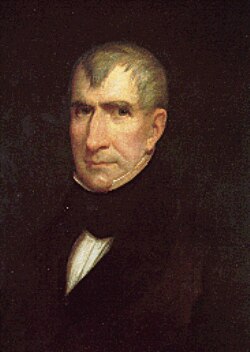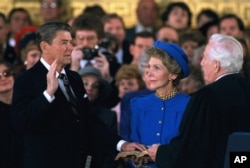After Donald Trump takes the presidential oath of office Friday amid the pomp and circumstance surrounding his inauguration, he will deliver his first address to the United States as commander-in-chief. As per tradition, Trump will speak outside the Capitol, where hundreds of thousands are expected to gather on Washington's National Mall.
We don't yet know the length of Trump's address, although some early reports suggest it could be around 20 minutes long.
Trump spokesman Sean Spicer says the incoming president has been making "edits and additions" and that the address will be "a very personal and sincere statement" about Trump's vision for the country.
Trump "will discuss what it means to be an American" along with the challenges faced by the middle class, according to Spicer, who added the speech will reflect the philosophy of Trump regarding the proper role of government.
Advance copies of Trump's much-anticipated speech have not yet been made available to reporters, who are expected to parse his words for clues as to how he will govern.
Anticipation of and mystery surrounding of the inaugural address of a president-elect has long been part of American history. The lengths of these speeches have varied widely. Consider President George Washington's second-term inauguration.
On March 4, 1793, Washington delivered the shortest inauguration speech in American history, 133 words.
In 1841, amid a snowstorm and freezing temperatures, William Henry Harrison gave what remains the longest inaugural address, a total of 8,495 words.
A month later, Harrison was dead. During the inclement weather, he developed a respiratory infection, and according to historians, succumbed to pneumonia.
Fear itself
Inaugural addresses have also produced some of the most memorable phrases in the American lexicon:
"We are all Republicans, we are all Federalists."
Thomas Jefferson March 4, 1801
“With malice toward none, with charity for all, with firmness in the right, as God gives us to see the right, let us strive on to finish the work we are in, to bind up the nation’s wounds… “
Abraham Lincoln, March 4, 1865
“The only thing we have to fear is fear itself.”
Franklin Delano Roosevelt, March 4, 1933
“Ask not what your country can do for you; ask what you can do for your country.”
John F. Kennedy, January 20, 1961
“In the present crisis, government is not the solution to our problem, government is the problem.”
Ronald Reagan, January 20, 1981













